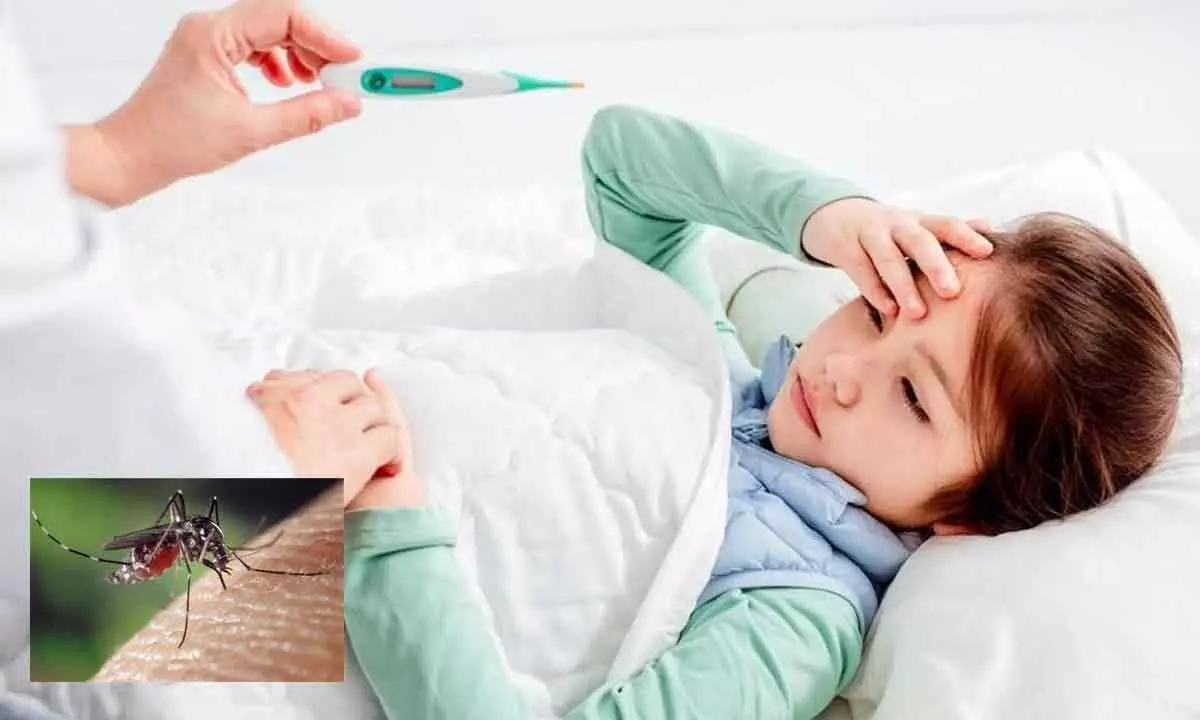Live
- Second phase randomization of EVMs is complete
- BJP confusing Matua voters though CAA notification: Mamata Banerjee
- IPL 2024: LSG might have to play the rest of the event without Mayank Yadav, says coach Justin Langer
- Two killed after colliding with a parked lorry
- PCB identifies the April 7- May 20 window for PSL 2025; to clash with IPL’s next season
- Viksit Bharat Ambassador event: Sri Sri Ravi Shankar heaps praise on PM Modi for Kashi facelift
- Women’s Hockey League: Haryana, Madhya Pradesh win on Day 5
- Indian Americans caution US university on demand to display 'flag of Kashmir'
- YS Sharmila worried over 'mental state' of brother Jagan
- PM Modi prays at Kanpur gurdwara along with CM Yogi
Just In
Empowering individuals with knowledge about disease


Community engagement and education are fundamental components of malaria control programs. Empowering individuals with knowledge about the disease, its transmission, and preventive measures empowers communities to take proactive steps in protecting themselves. Health education campaigns, delivered through various channels including schools, healthcare facilities, and community gatherings, raise awareness and promote behavior change.
Malaria, a deadly disease transmitted through the bite of infected mosquitoes, remains a significant global health challenge, particularly in tropical and subtropical regions. Its impact extends beyond the immediate health consequences, affecting economies, education, and overall development. To combat malaria effectively, it’s crucial to raise awareness about the disease, strategies for its control, and the ultimate goal of complete eradication.
Firstly, understanding the basics of malaria transmission is essential. The disease is caused by Plasmodium parasites, with five species known to infect humans. These parasites are transmitted through the bite of Anopheles mosquitoes, which thrive in warm and humid climates. Recognizing the symptoms of malaria, such as fever, chills, headache, and nausea, is vital for prompt diagnosis and treatment.
Preventive measures play a pivotal role in controlling malaria. The widespread use of insecticide-treated bed nets, particularly long-lasting insecticidal nets (LLINs), has proven to be effective in reducing mosquito bites during sleep, a common time for transmission. Indoor residual spraying (IRS) of insecticides further diminishes mosquito populations, contributing to malaria prevention efforts.
Moreover, access to appropriate healthcare services is critical for early diagnosis and treatment. Rapid diagnostic tests (RDTs) enable quick identification of malaria infection, facilitating timely administration of antimalarial medications. Artemisinin-based combination therapies (ACTs) are the frontline treatment for uncomplicated malaria, ensuring effective parasite clearance and reducing the risk of drug resistance.
Community engagement and education are fundamental components of malaria control programs. Empowering individuals with knowledge about the disease, its transmission, and preventive measures empowers communities to take proactive steps in protecting themselves. Health education campaigns, delivered through various channels including schools, healthcare facilities, and community gatherings, raise awareness and promote behavior change.
However, achieving malaria eradication requires sustained efforts and collaboration on a global scale. Investments in research and development are essential for the development of new tools and strategies, including vaccines, novel insecticides, and improved diagnostics. Additionally, strengthening health systems, particularly in resource-limited settings, enhances the delivery of malaria interventions and ensures equitable access to healthcare services.
Addressing the environmental and socio-economic determinants of malaria is crucial for long-term success. Factors such as stagnant water bodies, deforestation, and inadequate housing contribute to mosquito breeding sites and increase the risk of malaria transmission. Socio-economic disparities, including poverty and lack of access to education and healthcare, exacerbate vulnerability to the disease.
Malaria symptoms vary but commonly include fever, chills, sweats, headaches, nausea, and vomiting. Prevention measures like mosquito nets, insect repellents, and antimalarial medication are essential, particularly in malaria-endemic regions. Seeking medical care upon experiencing symptoms is imperative.
Raising awareness about malaria, its prevention, and treatment is paramount in the global effort to control and ultimately eradicate the disease.
Through a comprehensive approach that integrates preventive measures, prompt diagnosis, effective treatment, and community engagement, we can significantly reduce the burden of malaria and move closer to achieving the goal of a malaria-free world. It is imperative that governments, international organizations, civil society, and individuals join forces in this endeavor, ensuring that no one is left behind in the fight against malaria.

© 2024 Hyderabad Media House Limited/The Hans India. All rights reserved. Powered by hocalwire.com






